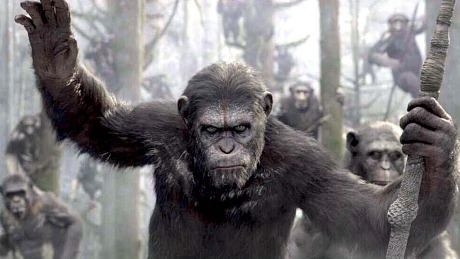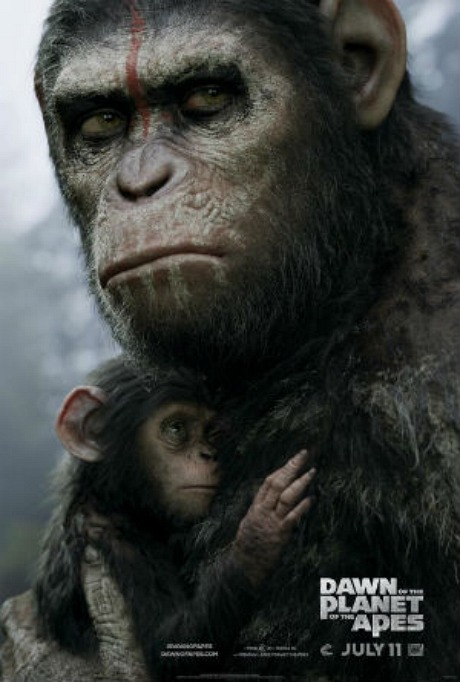Last Wednesday evening 25 or 30 journos were shown five or six scenes from Matt Reeves‘ Dawn Of The Planet of the Apes (20th Century Fox, 7.11). It was a chance to sample the quality of the visual effects, which of course are top-notch, as well as the performances from both the ape and human characters, which I was genuinely impressed by. It was also a chance to get an idea of what kind of film this might turn out to be.

The footage suggested that Dawn is going to be solid and sturdy, but I came away from Wednesday’s screening with a suspicion that it might be not be quite as good as 2011’s Rise of the Planet of the Apes, which was basically the story of how Andy Serkis‘s Ceasar got smarter and stronger and finally broke out of bondage with his fellow apes. It was all about individual story tension — about the sand pouring out of the glass and the audience wondering when things would finally snap and turn away from James Franco and in Ceasar’s direction.
Dawn seems less personal and more group-oriented. More about military and political tactics than individual direction. Speeches, declarations, taunts, lines in the sand. An ape army standing in opposition to an opposing army of humans. Families and alliances and group dynamics.
Basically Rise is like the first 35 or 40 minutes of Stanley Kubrick‘s Spartacus (i.e., the first 25%) inside the gladiator school in Capua — the story tension and the personal suspense element about when and how they might break out. Rise is similarly about the imprisonment inside the lab and the ape zoo, and when and how they’re going to break free. The first 25% of Spartacus is easily the most interesting portion of that 1960 film. And I’m thinking that Dawn might (I say might“) be like the last 75% of Kubrick’s film — the battles, Mt. Vesuvius, the Roman Senate speeches, etc.
Rise of the Planet of the Apes was more intimate — about the story tension and the personal suspense element and the imprisonment. The big payoff comes when the apes break out and have the big fight on the Golden Gate bridge. Just as the Spartacus payoff comes when Kirk Douglas and his fellow gladiators break out.
Once the gladiators break free, Spartacus becomes a movie about (a) speeches and (b) the gladiator army doing this and that and (c) the Roman army doing this or that. But once the gladiators are defeated by the armies of Crassus and Pompey and Spartacus and Antoninus are looking at death and crucifixion, then it becomes interesting again.
My problem is that Dawn of the Planet of the Apes looks like it might be more about the speeches and the battles and the stand-offs more than anything else. That’s all I’m saying. I hope I’m wrong.













